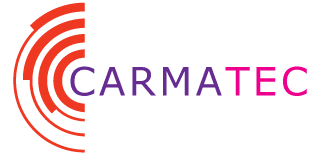Choosing the right programming language for your project is crucial for its success. PHP and Python are two popular choices, each with its unique features and benefits. Let’s explore their differences and determine which might be better suited for your needs in 2024.
What is PHP?
PHP (Hypertext Preprocessor) is a widely-used open-source server-side scripting language designed for web development. Initially created by Rasmus Lerdorf in 1994, PHP is embedded within HTML to add functionality to web pages. It is known for its simplicity, speed, and flexibility, making it ideal for creating dynamic web content and interactive websites.
Features of PHP
1. Simplicity and Ease of Use
PHP is designed to be simple and easy to learn, especially for web development. Its syntax is straightforward, making it accessible to beginners.
2. Web Development Focus
PHP is primarily used for server-side scripting and is embedded within HTML, making it ideal for developing dynamic websites and web applications.
3. Extensive Documentation and Community Support
PHP has extensive documentation and a large, active community, providing a wealth of resources, tutorials, and forums for troubleshooting.
4. Integration with Databases
PHP seamlessly integrates with various databases, including MySQL, PostgreSQL, and SQLite, which is essential for building data-driven applications.
5. Performance and Efficiency
PHP is known for its speed and efficiency in handling web requests, making it a preferred choice for high-traffic websites.
What is PHP Used For?
PHP (Hypertext Preprocessor) is primarily used for server-side web development, enabling the creation of dynamic and interactive websites. Here are some common use cases:
- Dynamic Web Pages: PHP can generate dynamic content based on user interactions or other inputs.
- Web Applications: PHP powers complex web applications, such as social networks, forums, and custom web software.
- Content Management Systems (CMS): Popular CMS platforms like WordPress, Joomla, and Drupal are built on PHP.
- E-commerce Platforms: PHP is used to develop e-commerce websites and platforms like Magento, WooCommerce, and OpenCart.
- Database Interaction: PHP seamlessly integrates with databases like MySQL and PostgreSQL to retrieve, store, and update data.
Features of Python
1. Versatility and General-Purpose Use
Python is a versatile, general-purpose language used for web development, data analysis, machine learning, automation, and more. Its wide range of applications makes it a powerful tool for various projects.
2. Readable and Maintainable Code
Python emphasizes readability and maintainability with its clean and simple syntax, which resembles plain English. This makes it easy to write and understand code.
3. Extensive Libraries and Frameworks
Python boasts an extensive standard library and a plethora of third-party libraries and frameworks, such as Django and Flask for web development, Pandas and NumPy for data analysis, and TensorFlow for machine learning.
4. Strong Community and Support
Python has a strong, active community that contributes to its vast ecosystem of libraries and frameworks. There are numerous resources available for learning and troubleshooting.
5. Cross-Platform Compatibility
Python is cross-platform, meaning it can run on various operating systems, including Windows, macOS, and Linux, without modification.
What are the Benefits of PHP?
1. Cost-Effective
PHP is open-source and free to use, which makes it a cost-effective solution for web development projects.
2. Widely Supported by Hosting Providers
PHP is widely supported by hosting providers, simplifying the deployment process.
3. Rapid Development
PHP’s ease of use and extensive frameworks, such as Laravel and Symfony, enable rapid development of web applications.
4. Scalability
PHP applications can be easily scaled to handle increased traffic and larger databases, making it suitable for growing businesses.
5. Security
With proper coding practices and the use of security-focused frameworks, PHP can be used to build secure web applications.
What are the Benefits of Python?
1. Versatile Applications
Python’s versatility allows it to be used in various domains, from web development to data science, making it a valuable skill for developers.
2. High Demand in the Job Market
Python’s popularity has led to high demand for Python developers, offering numerous job opportunities.
3. Ease of Learning and Use
Python’s readability and simplicity make it easy to learn and use, even for beginners.
4. Strong Support for Emerging Technologies
Python is widely used in emerging technologies such as artificial intelligence, machine learning, and data science, providing developers with opportunities to work on cutting-edge projects.
5. Community and Ecosystem
Python’s active community and extensive ecosystem provide robust support, resources, and libraries for developers.
How is PHP Different From Python: Comparison in 2024
1. Web Development
- PHP: Ideal for server-side scripting and building dynamic websites. It is the go-to language for content management systems like WordPress.
- Python: Suitable for both front-end and back-end development. Frameworks like Django and Flask make it a strong contender for web development projects.
2. Performance
- PHP: Known for its speed in handling web requests, making it suitable for high-traffic websites.
- Python: While not as fast as PHP in web requests, Python’s performance is adequate for most applications and can be enhanced with optimization techniques.
3. Ease of Use
- PHP: Simple syntax and extensive documentation make it easy to learn and use for web development.
- Python: Emphasizes readability and simplicity, making it easy to write and understand code, even for beginners.
4. Community and Support
- PHP: Has a large, active community with extensive resources for web development.
- Python: Boasts a strong, active community with a vast ecosystem of libraries and frameworks for various applications.
5. Versatility
- PHP: Primarily used for web development.
- Python: Versatile, used in web development, data science, machine learning, automation, and more.
When Should You Choose Python?
Choosing Python for your project is beneficial in several scenarios:
- Data Science and Machine Learning: Python is the preferred language for data analysis, visualization, and machine learning due to libraries like Pandas, NumPy, and TensorFlow.
- Web Development: Frameworks like Django and Flask make Python a strong contender for building robust web applications.
- Automation and Scripting: Python excels in writing scripts for automating repetitive tasks.
- Cross-Platform Development: Python’s cross-platform nature allows it to run on various operating systems without modification.
- Rapid Prototyping: Python’s simplicity and readability enable quick development and iteration of prototypes.
When Should You Choose PHP?
Choosing PHP is advantageous in several scenarios:
- Web Development: PHP is designed specifically for web development, making it ideal for building dynamic websites and web applications.
- Content Management Systems (CMS): Many popular CMS platforms like WordPress, Joomla, and Drupal are built on PHP, offering extensive plugins and themes.
- E-commerce Platforms: PHP powers robust e-commerce solutions such as Magento and WooCommerce.
- Server-Side Scripting: PHP excels in server-side scripting, allowing for the creation of dynamic content.
- Cost-Effective Development: PHP is open-source and widely supported by hosting providers, reducing development and deployment costs.
Conclusion
In 2024, the choice between PHP and Python depends on your project requirements and goals. PHP remains a robust choice for web development, especially for server-side scripting and dynamic websites. Python, with its versatility, readability, and strong support for emerging technologies, is an excellent choice for a wide range of applications, including web development, data science, and machine learning.
Both languages have their strengths and are supported by strong communities and ecosystems. The decision should be based on the specific needs of your project, your team’s expertise, and the future scalability and maintenance of your application. To know more connect with Carmatec.
Frequently Asked Questions
1. What are the primary use cases for PHP and Python in 2024?
- PHP: Primarily used for server-side web development, content management systems (CMS), and e-commerce platforms.
- Python: Versatile, used for web development, data science, machine learning, automation, and more.
2. How do PHP and Python compare in terms of ease of learning?
- PHP: Known for its straightforward syntax and ease of use, especially for beginners in web development.
- Python: Emphasizes readability and simplicity, making it easy to learn and write, even for those new to programming.
3. Which language offers better performance for web applications?
- PHP: Generally faster for handling web requests due to its design focused on web development.
- Python: While not as fast as PHP for web requests, Python’s performance is sufficient for most applications and can be optimized.
4. What are the community and support differences between PHP and Python?
- PHP: Has a large, active community with extensive resources and support for web development.
- Python: Boasts a robust, active community with a vast ecosystem of libraries and frameworks for various applications.
5. Which language should I choose for my project in 2024?
- Choose PHP: If your project focuses on server-side scripting, dynamic websites, or content management systems.
- Choose Python: If you need a versatile language for web development, data science, machine learning, or automation projects.













